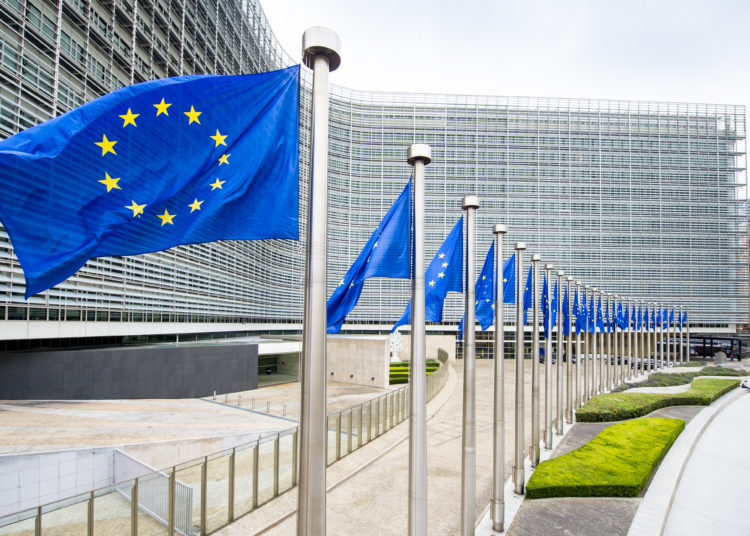Nordic Monitor
The European Commission’s Turkey 2020 Report has highlighted widespread corruption in the country and a poor track record of investigation in high-level corruption cases involving politicians and public officials.
The EU report revealed serious backsliding in democracy, the rule of law and fundamental freedoms in the absence of an effective mechanism of checks and balances. According to the report, as a candidate country Turkey remains a key partner for the EU but has continued to move away from the bloc and has backslid in a number of key areas.
The European Commission said Turkey had made no progress in the fight against corruption and lacked preventive anti-corruption bodies and that the country’s current legal framework and institutional architecture allowed undue political influence in the investigation and prosecution of corruption cases.
“Accountability and transparency of public institutions need to be improved. The absence of an anti-corruption strategy and action plan indicated the lack of political will to fight decisively against corruption. Overall, corruption is widespread and remains an issue of concern,” the EU report said.
According to the commission, a cross-party strong political will and robust criminal justice response is needed to fight high-level corruption. “There remained an overall poor track record of investigation, prosecution and conviction in corruption cases, particularly in relation to high-level corruption cases involving politicians and public officials,” according to the report.
The Turkish government rejected some of the findings and branded the EU criticism as prejudiced. “The EU’s biased, unconstructive and double-standard based stance is reflected in this year’s Report yet again. This year’s Report continues to criticize Turkey by means of unfounded arguments, while still not referring to its own unfulfilled responsibilities and commitments,” the Turkish foreign ministry said in a statement.

The report stressed the absence of an anti-corruption strategy and action plan, saying: “There was no progress in addressing the many gaps in the Turkish anti-corruption framework, which is a sign of a lack of will to fight decisively against corruption. The corruption allegations were seldom reported and only in a small number of media.”
The Turkey report exposed the fact that recommendations from the Council of Europe’s Group of States against Corruption (GRECO) have not been implemented and that the corruption-related provisions of the Turkish Penal Code do not meet the standards put in place by the Criminal Law Convention on Corruption.
The commission urged the Turkish government to implement its international obligations including the UN Convention against Corruption and the Council of Europe’s related conventions; ensure effective followup to the recommendations of GRECO; “establish a track record of successful prosecution of, and convictions for, high-level corruption”; and adopt an anti-corruption strategy confirming the government’s clear political will to address corruption.
“Sentences [in Turkey] did not have a deterrent effect. The cooperation between audit and inspection units and prosecution offices needs to be improved. Political financing, local administration, land administration and management, public procurement, and the construction and transportation industries, especially when implemented via public-private partnerships, remained particularly prone to corruption,” the report said.

The commission published its annual reports on October 6, assessing the implementation of fundamental reforms in the Western Balkans and Turkey.
In a statement EU High Representative for Foreign Affairs and Security Policy and Vice President of the European Commission Josep Borrell praised the progress of the Western Balkan countries but did not mention Turkey as being among countries that belong in the EU. “The citizens of the Western Balkans are part of Europe and they belong in the European Union. Today’s reports on the Enlargement Package provides a rigorous assessment that indicates the way forward, highlighting what has been achieved and where there is still hard work to be done,” Borrell said.
“Turkey has continued to move further away from the European Union with serious backsliding in the areas of democracy, rule of law, fundamental rights and the independence of the judiciary,” the commission stated in its press release on the annual reports.

The report said the adverse impacts of a state of emergency that was declared by the Turkish government in July 2016 after an abortive coup and continued for two years was still felt and continued to significantly impact democracy and fundamental rights. This was due in large part because “Certain legal provisions granting extraordinary powers to the government authorities and retaining several restrictive elements of the emergency rule have been integrated into law.”
Turkey experienced a controversial coup attempt on the night of July 15, 2016 which, according to many, was a false flag aimed at entrenching the authoritarian rule of President Recep Tayyip Erdoğan by rooting out dissidents and eliminating powerful actors such as the military in his quest for absolute power.
Turkey and the EU began membership talks in 2005, but the process has come to a standstill in recent years. Countries aspiring to become members must align their laws and legislation in 35 policy areas, or negotiating chapters. EU leaders agreed in 2018 that no new chapters in Turkey’s accession negotiations should be opened or closed.












